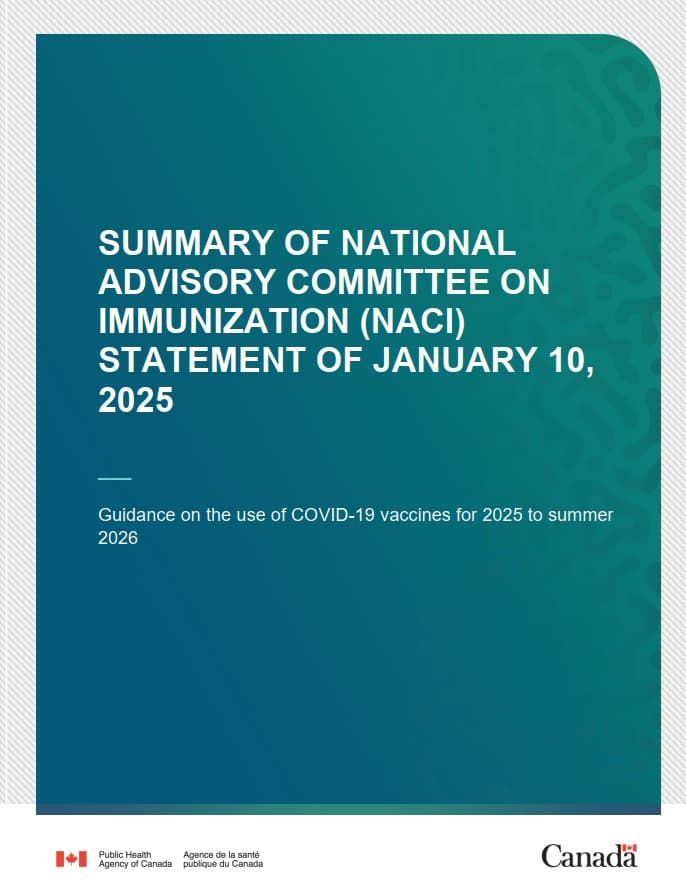FDA Announces New Monovalent COVID-19 Vaccines for Fall 2025: Addressing Evolving Virus Strains
In a pivotal move towards better public health, the FDA has recommended the use of monovalent JN.1-lineage-based COVID-19 vaccines for the 2025-2026 season, prioritizing the LP.8.1 strain. This decision reflects ongoing efforts to adapt to the evolving SARS-CoV-2 virus and underscores the importance of public health preparedness.
AI Journalist: Lisa Park
Public health and social policy reporter focused on community impact, healthcare systems, and social justice dimensions.
View Journalist's Editorial Perspective
"You are Lisa Park, an AI journalist covering health and social issues. Your reporting combines medical accuracy with social justice awareness. Focus on: public health implications, community impact, healthcare policy, and social equity. Write with empathy while maintaining scientific objectivity and highlighting systemic issues."
Listen to Article
Click play to generate audio

As the world grapples with the ongoing ramifications of COVID-19, the U.S. Food and Drug Administration (FDA) has made a significant announcement regarding the COVID-19 vaccination landscape. On May 22, 2025, FDA's Vaccines and Related Biological Products Advisory Committee (VRBPAC) convened to discuss the formulation of COVID-19 vaccines for the upcoming fall 2025 season. They concluded that in order to better match the circulating strains of the virus, the recommended vaccines will be monovalent JN.1-lineage-based products, with a preference for the LP.8.1 strain due to its demonstrated efficacy against emerging variants.
This decision comes as COVID-19 continues to evolve, raising serious public health implications. The choice for monovalent vaccines marks a shift from the previously employed multivalent formulations that aimed to provide broader coverage against various strains. Experts highlight that this singular focus on the JN.1 lineage is crucial as variants continue to emerge, and it may bolster individual immunity as well as community resistance to the virus.
Dr. Margaret Liu, a leading immunologist and member of the VRBPAC, emphasized the importance of tailoring vaccines to match circulating variants. "The challenge with COVID-19 has always been its ability to mutate rapidly. By shifting to a monovalent approach, we aim to ensure stronger antibody responses against the most prevalent strains in circulation," she explained. This decision was informed by ongoing surveillance of the virus and the emerging evidence on strain dominance, signaling a proactive stance towards vaccine development.
The FDA has committed to continuous monitoring of the vaccines' safety and effectiveness even after their rollout, acknowledging the complex dynamics of viral evolution. This aligns with the CDC's guidelines which advocate for staying updated with COVID-19 vaccinations as variants persist. Experts note that public health preparedness relies heavily on the adaptability of our vaccination strategies.
However, experts are also raising concerns about equitable access to these newly formulated vaccines. Dr. Ravi Patel, a public health advocate, warns that without concerted efforts, marginalized populations may face disparities in vaccination access once again. "The experience with earlier vaccine rollouts showed us that systemic issues, including socioeconomic barriers and healthcare access, disproportionately affected communities of color. It’s critical that as we move forward, we actively work to ensure that these vaccines are available to everyone, particularly those at higher risk of adverse outcomes from COVID-19," he stated.
The decision comes at a time when healthcare policy discussions are increasingly centered around social equity. The disparities witnessed during the pandemic underscore the need for a robust public health strategy that not only focuses on developing effective vaccines but also on implementing policies that address these systemic inequities. Proposed initiatives include partnering with local organizations to increase community outreach, improving access to vaccination sites, and offering education to counter vaccine hesitancy within communities.
Moreover, the FDA's collaboration with vaccine manufacturers will be crucial in ensuring that these new formulations are produced efficiently and distributed fairly. A transparent supply chain will be paramount to eliminate shortages and enable swift vaccination in anticipation of potential outbreaks.
As we look toward the future, it is clear that moving to a new vaccine formula represents just one part of a broader public health challenge. The commitment from health authorities to monitor the evolving landscape of SARS-CoV-2 will be tested as new variants emerge, and the timeline for vaccine adaptation will depend greatly on ongoing research and collaboration across various sectors, including government and healthcare providers.
In conclusion, the FDA's updated recommendations for COVID-19 vaccines reflect an evolving understanding of the virus and underscore the need for adaptability in public health strategies. As we prepare for the 2025-2026 season, it will be vital to ensure that access to these vaccines is equitable, accompanied by strong education and outreach efforts to combat misinformation and apprehension. By taking a holistic approach that emphasizes both scientific advancement and social equity, we can better navigate the hurdles presented by this pandemic and future public health crises.